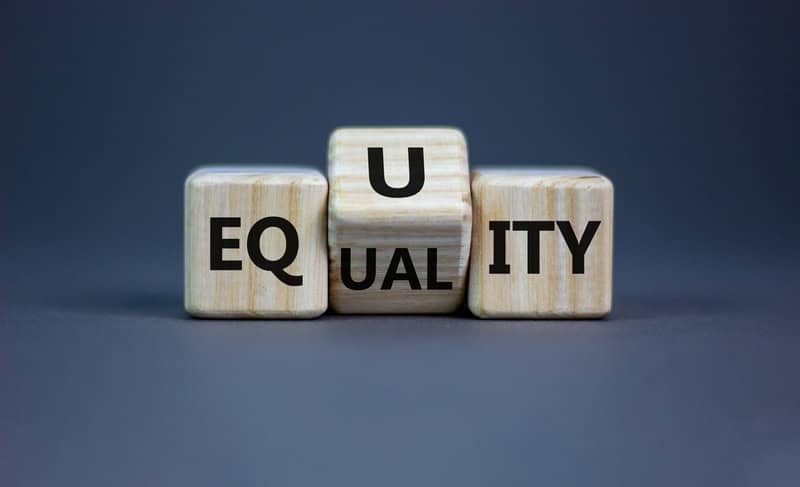Post Author
Let’s talk about fairness.
We grow up hearing things like, “treat everyone the same,” and “it’s only fair if everyone gets the same thing.” And yeah, that sounds pretty reasonable—at first.
But then you get older. You see how different people live, how different their circumstances are, and suddenly that idea doesn’t feel quite right anymore.
So here’s a question worth asking: What if treating everyone the same isn’t actually fair?
The Basics: Equality vs. Equity
Here’s how I like to think about it.
Equality is about giving everyone the same thing.
Equity is about giving everyone what they need.
Big difference, right?
Say three people are watching a game behind a fence. You hand each of them the same-sized box to stand on. Sounds fair. But what if one’s tall enough to see just fine already, one’s average height, and needs the box to see, and the third is way too short, even with the box?
That’s equality in action. Everyone gets the same thing, but the outcome isn’t fair.
Now imagine giving each person what they need to see over the fence—maybe no box, one box, or even two. That’s equity.
It’s not about giving more to some people. It’s about recognizing that the playing field isn’t level to begin with.
Why It Actually Matters
This isn’t just a thought experiment—it shows up everywhere in real life.
In schools, some kids get extra support. Not because they’re lucky or special, but because they’re learning in a different language or don’t have internet at home or are dealing with stuff no kid should have to deal with. Giving them the exact same treatment as everyone else wouldn’t help—it would just keep them behind.
In healthcare, equity might mean making sure low-income families can access free checkups or transportation to appointments. Because without that, “free healthcare” on paper doesn’t mean much.
At work, it might mean offering flexible schedules or mental health days. Not to play favorites—but to actually support people in ways that work for them.
We all have different needs. Equity acknowledges that. Equality doesn’t always. And @RedForkKnife describes it well.
Equity is better than equality
byu/RedForkKnife inunpopularopinion
Why We Struggle With It
Here’s the tricky part: equity can feel unfair at first glance. It makes some people uncomfortable because it challenges the idea that equal treatment is always the right thing. And then there’s the fact that many of our systems weren’t built with equity in mind. They’re based on this idea of a “neutral” or “average” person, which doesn’t really exist. People’s experiences vary wildly—based on race, sexuality, gender, income, ability, location, education, you name it.
And then there’s the human side: we’re creatures of habit. Changing how we think about fairness takes effort. It means asking more questions, paying more attention, and being open to different perspectives.
Bringing It Closer to Home
This isn’t just about government policy or school programs. It’s about everyday stuff, too.
Are you a manager who expects everyone on your team to thrive under the same conditions? A teacher who gives the same assignment without thinking about who might not have help at home? A friend who assumes your way of coping works for everyone?
This stuff shows up in small ways. It’s in how we treat people, how we listen, and how we support each other.
It starts with noticing.
Final Thoughts
I think we get stuck on the idea that fairness means sameness. But fairness—real fairness—means understanding that people are starting from different places, and meeting them there.
Fairness is not sameness.
— Brian Aspinall (@mraspinall) June 24, 2015
Equity is not equality. pic.twitter.com/0GfB2kN76u
It’s not about giving handouts or lowering the bar. It’s about giving people a fair shot at getting to the same finish line—even if that means the path looks different for each person.
So the next time someone says, “We treat everyone the same,” maybe it’s worth asking:
Yeah, but is it helping everyone succeed?





